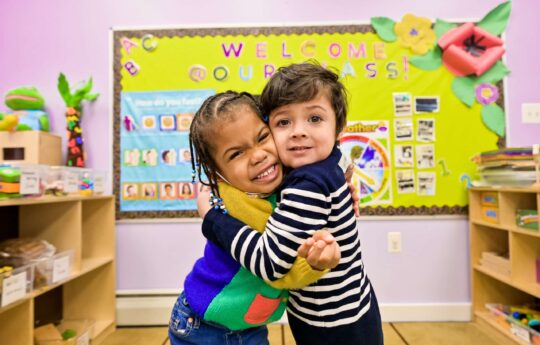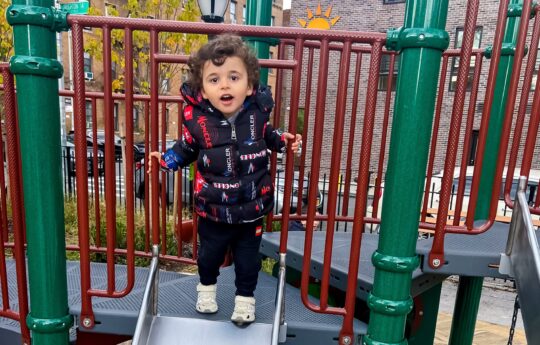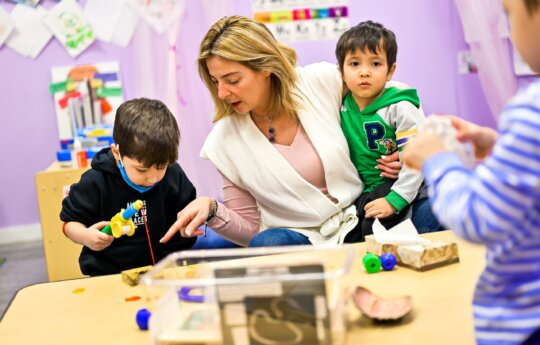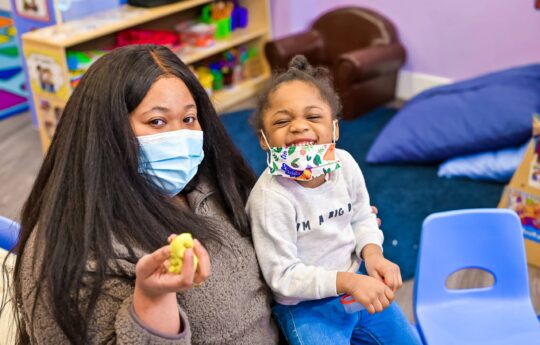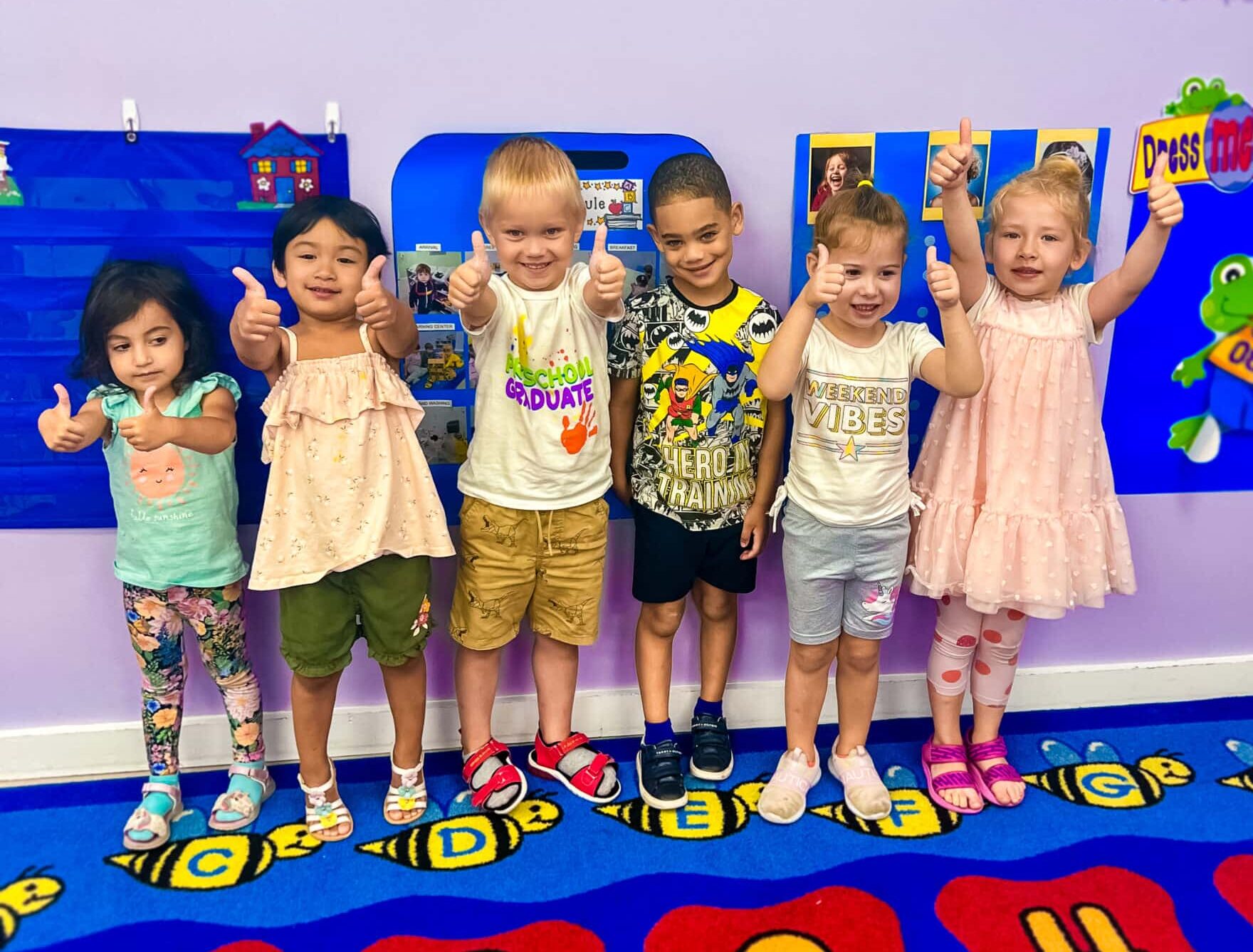
Do you know the significance of holidays to children? Holidays are often some of the happiest times in a child’s life. Children grow up waiting for, preparing for, and dreaming about their next holiday. Holidays, and the celebrations that follow, allow kids to express their creativity, experience positive emotions and noble impulses, teach teamwork, and spiritually enliven the mind and heart.
Given the opportunity to take a break from daily life, shake yourself up, and simply unwind, holidays create such happy occasions and memories, and in turn play a significant role in a child’s life. A well-known saying is that there is no childhood without holidays. This proves to be true as holidays have many impacts; helping children grow spiritually, broadening their understanding of the world, reviving beloved customs, bringing people together, and inspiring creativity. When planning and preparing for a holiday, teachers, educators, and parents should prioritize the interests of each individual child and the group of kids for whom this holiday is for.
Engagement in the process
A festive environment, beautiful set design, costumes, well chosen content, and the vibrant performances of kids are all crucial components of an engaging education.
Active involvement in singing, dancing, and playing games strengthen children’s development, as well as improving their movement and coordination. During the holidays entertainment planning is done methodically, without interfering with the school’s daily routine. If the instructor is familiar with their hobbies and unique features, he or she will be able to make each day of the students’ time in kindergarten more enjoyable and meaningful.
The fundamental basis for holiday events and activities should focus on entertaining the children. Ways to incorporate the holidays content clearly while also engaging the children are through songs, poetry, music, dances, dramatizations, and decorations. When planning and presenting creative and fun ideas surrounding the holiday season children gain speech intelligibility and pronunciation, develop their auditory attention and perception, grow their vocabulary, and become more aware of their surroundings.
New sensations
Celebrations have a significant role in a child’s mental development as a component of the educational process. The planning and celebration of holidays lay the groundwork for the growth of creative skills (expressive dancing, singing, and memorizing little poems), the expression of unique talents and preferences, the development of communication abilities, and the formation of a feeling of responsibility. The combined effect of many forms of art boosts the child’s creative and aesthetic sensations and improves their ability to perceive the festive environment.
Holidays can have an educational purpose by fostering a sense of community, educating children about celebration customs, and modeling appropriate behavior.
Children enjoy the holiday, but it’s also a chance for them to impress others—most importantly, loved ones—with their accomplishments. Parents have the chance to feel like active participants in the educational process while preparing for the holiday celebration, which gives them more incentive to interact with their children. Parents transform into appreciative spectators during holidays, taking in both the event itself and the chance to admire and celebrate their child’s accomplishments.
Children always anticipate holidays. Even this expectation has the potential to become the most memorable childhood experience, a sense of wonder that a miracle is going to happen.
The benefits of celebrating for kids
For most parents, the holidays revolve around making the children happy, giving them gifts, and creating sacred memories. However, there are deeper gifts than those that meet the eye that the children receive from celebrating holidays with their families. With the appropriate planning of holidays like Christmas, Easter, and New Year’s, moral qualities like compassion, empathy, and love are developed. Using the family’s customary ornaments, you can jointly decorate your home and Christmas tree. You can also enlist your child’s assistance in meal preparation, plan an engaging Easter egg hunt, and volunteer with charitable organizations bringing your kid along.
Establishing familial customs. They aid with the understanding of communication and behavior patterns, which will be helpful for the kid as they grow up to fit in society. It is beneficial when family traditions include more than just well-known holidays and are enhanced by unique creations. A group supper in the evening, weekend strolls, a monthly trip to the entertainment center, or a visit to the grandparents are just a few examples. Even the seemingly little accomplishments of each family member can be honored on a holiday. Knowing the family’s traditions will help the kid grow up feeling secure and at ease, and the more holidays celebrated, the more fun and exciting experiences the youngster will experience in their life.
In preschool, a kid can develop existing skills and learn new ones via holidays and entertainment. Children display their accomplishments at these occasions. Holidays and celebrations provide the youngster with fresh experiences that encourage their further growth. So, do not hesitate to throw a little party for your baby and make them happy even for a not significant occasion!

